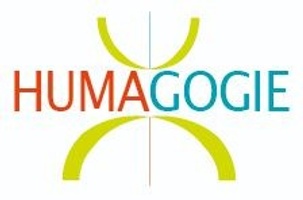
ALARM DISTRESS BABY SCALE (ADBB), DETECT AND EVALUATE THE RELATIONAL WITHDRAWAL OF BABIES BETWEEN 0 AND 24 MONTHS
Advanced Level - Training online hybrid with virtual classes and E-learning
Besoin d’adapter cette formation à vos besoins ?
N’hésitez pas à nous contacter afin d’obtenir un devis sur mesure !
Formation créée le 26/04/2024. Dernière mise à jour le 08/04/2025.
Version du programme : 1
Programme de la formation
The objective of the training is to train you in the assessment of relational withdrawal in babies between 0 and 24 months for the purposes of prevention, early detection, research and monitoring under intervention by health, mental health, childhood and protection personnel. from childhood. Why learn to assess relational withdrawal? Withdrawal is a major component of the baby’s response to the altered relationship that occurs during the still-face experience or clinically during maternal depression. Withdrawal behaviour is also one of the most stable during development, despite the major changes that occur in the first three years of life. Early relational withdrawal behaviour is therefore an important warning signal. The baby’s defensive repertoire is indeed initially quite limited, and focuses mainly on protest and withdrawal. Withdrawal is more difficult to detect than protest, and yet it occurs in many situations of early psychopathology, in an overt or incidental way, whether it is a condition caused initially by a relational disorder, or by an organic disorder, as in intense and long-lasting pain. What is ADBB? The ADBB scale is an 8-item scale for assessing relational withdrawal in babies between 0 and 24 months of age. It is an observation aid grid validated by research. The ADBB was developed by Pr. A. Guedeney (child psychiatrist, Hôpital Bichat Claude Bernard, AP/HP Paris). The Baby Distress Alarm Scale (ADBB) is an observation aid for child professionals (pediatricians, child psychiatrists, psychologists, childcare workers, educators etc…). It is used in clinics (screening), for the evaluation of interventions, for research. Methods: Part of the work is done asynchronously, either in self-training and collaborative work on the learning community and another part in synchronous work in a virtual remediation and support class by the trainer. Estimated overall duration: 65 hours (Synchronous: 20h and Asynchronous: 45h)
Objectifs de la formation
- Define relational withdrawal,
- Understand the links between relational withdrawal and developmental risk,
- Cite key findings from research on relational withdrawal and the validity of the scale,
- Cite and define each of the items on the ADBB scale,
- Be aware of the legal, ethical and technical requirements for conducting an assessment,
- To detect a baby in relational withdrawal in all assessment situations in a reliable manner,
- Assess the severity of relational withdrawal in a reliable manner.
Profil des bénéficiaires
- psychologists,
- pediatricians
- doctors
- child psychiatrists
- childcare workers
- child and family psychotherapists
- special educators
- psychometricians
- Knowledge of the normal development of the child between 0 and 2 years old
- Work with babies from 0 to 24 months
Contenu de la formation
-
Week 1 -2: Introduction and The theoretical foundations of the ADBB scale
-
Week 3 : The manual and To build a representation of relational withdrawal
-
Week 4 : Learn how to use the scale
-
Week 5 : Deepening
-
Week 6 : Difficult items and revaluation
-
Week 7 : Case studies
-
Week 8-9 : Practice with yours vidéos - before certification (white certification)
-
Week 10-11 : REVISIONS
-
Week 12-14 : CERTIFICATION
Alexandra Deprez, SEO B-Families: Doctor in psychology, certified trainer for the ADBB, expert trainer and pedagogical tutor. Child and adolescent psychologist. Trained in perinatal psychopathology and different attachment assessment tools (CARE-Index, Adult Attachment Interview, Strange Situation, Crowell Procedure..) and different modalities of informed attachment and trauma therapy interventions: Theraplay, EMDR etc. Jocelyne Guillon, SEO Humagogie: instructional designer, administrative tutor (management of registrations and administrative documents of the training) and Learning Community Manager.
- At the end of the training course, you will receive a certificate of completion of the training course and a private certificate of achievement indicating your level of ADBB scale use (clinical, expert or research) subject to :
- Learning activities are monitored throughout the course by recording connection times on the platform,
- Recording attendance at virtual classes, your involvement in the learning community and the completion of educational activities and exercises.
- Answer to the Quiz
- Videos production
- Submit your file for the Final Attestation (ADBB private certification)
- OWNERSHIP OF CONTENT :
- All teaching material presented, whether in the form of videos, course materials or practical workshops, is the property of the B-Families and Humagogie training organisations. The trainee undertakes on his or her honour to use them solely for personal training and exclusively for professional purposes and not to exploit them in any way that could harm or cause prejudice or competition to the training organisations, B-Families and Humagogie. See details in the general conditions of use on the website. The materials and all the content of the training courses, as well as the educational programme as a whole, are protected by the Code de la propriété́ intellectuelle (Intellectual Property Code). Pursuant to article L335-3 of this Code, ‘any reproduction, representation or distribution, by whatever means, of a work of the mind in violation of the author's rights’ constitutes an infringement of copyright. Copying, representing, distributing or using any part of the content or the course requires the explicit agreement of the author, the trainer and Humagogie.
- ADBB and M-ADBB Handbook
- Vidéos
- On-line availability of support documents following the training.
- NB: Licence for use of teaching materials - Alexandra DEPREZ All content distributed as part of my training courses (teaching materials, videos, scenarios, downloadable documents or not) is protected by copyright. They are made available under the following conditions: ✅ You may : Quote extracts in an educational or scientific context, mentioning the author: Alexandra DEPREZ. Share an extract of the material (with the exception of videos) in a strictly non-commercial context, for the purposes of raising awareness or teaching. Use certain elements in a scientific or academic communication, only with my prior written agreement. ❌ You may not: Use, reproduce or adapt this content for commercial purposes, including in paid training courses, commercial publications or services. Modify or distort the content without express permission. This content is protected by the Creative Commons BY-NC-ND 4.0 (Attribution-Noncommercial-No Derivative Works) licence: 👉 https://creativecommons.org/licenses/by-nc-nd/4.0/deed.fr For any specific request (reproduction, translation, academic use, etc.), please contact me directly.
Qualité et satisfaction
Modalités de certification
- Final Attestation (private certification) It is mandatory and involves the rating of 15 ADBB videos and the submission of your results to the trainer on an Excel file. Your results will be subject to a statistical test to determine your reliability in evaluating relational withdrawal. A final certificate will be given to you at the end of the training, informing you of the conditions under which you can use the ADBB Scale based on your results. This certificate is valid for a period of two years. Why this delay? Because a fine observation skill, if not maintained, diminishes with time. At the end of the training, you will be offered simple ways to maintain your ADBB skill, such as continuing with an online supervision group or joining the next ADBB scale training session as a peer tutor. The ADBB private certification is valid for 2 years, in fact, this knowledge has to be updated regularly and after 2 years it is possible that one has developed biases and feedback from an ADBB expert is necessary.
- Reliability criteria: • Correlation .60: Use of the ADBB for screening purposes. • Correlation. 80: use of the ADBB for clinical, follow-up intervention, and research purposes. • Correlation .90: access to ADBB facilitator training, use of ADBB for expert purposes, possibility of using it for written reports.
- 2 ans
Capacité d'accueil
Délai d'accès
Accessibilité
Prochaines dates
- ALARM DISTRESS BABY SCALE (ADBB) Level 2: Detect and eval... - 03/02/2026 au 12/06/2026 - distance - (40 places restantes)
